#Melissa Murray
Text
The Conservative Supreme Court Vision That Means Inequality for Women
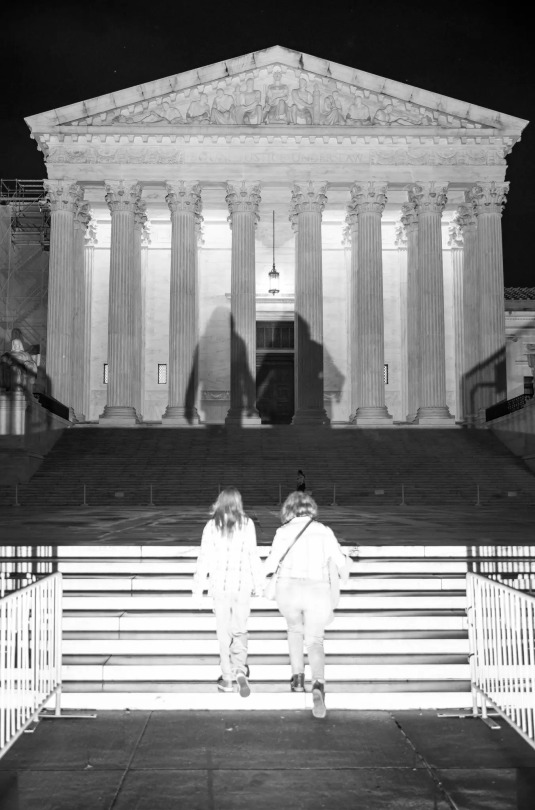
“I'm trying to understand if there’s a flaw in the history and traditions kind of framework to the extent that when we're looking at history and tradition, we're not considering the history and tradition of all of the people but only some of the people, as per the government's articulation of the test?”
--Justice Ketanji Brown Jackson, regarding United States v. Rahimi

This is a gift🎁link that anyone can use to get past the NY Times paywall to read this entire column about how the championing of "a history-and-tradition-bound method of constitutional interpretation" by the conservative SCOTUS justices will most likely limit women's rights. As the authors Melissa Murray and Kate Shaw point out, at the time the Constitution was written, "the principle of 'coverture' [that] gave husbands legal authority over their wives" was part of common law. So (perhaps by design) an originalist constitutional interpretation will result in second-class status for women.
The requirement that present-day gun laws resemble gun laws of the distant past prioritizes history and tradition in much the same way the Dobbs court looked to the historic regulation of abortion, pregnancy and birth to support the view that the Constitution did not protect a right to abortion.
[...]
The history-and-tradition methodology privileges laws enacted in eras like the 1780s, when the original Constitution was ratified, and the 1860s, when the 14th Amendment was drafted and ratified — moments in time when neither women nor people of color were able to fully join the political community and played no official role in enacting laws.
Should a method that privileges eras of extreme democratic deficit be relied upon to determine contemporary constitutional meaning?
[...]
As an amicus brief...explains, in common law, the principle of “coverture” gave husbands legal authority over their wives, including the prerogative to “correct” or “chastise” through force or violence. There is active debate regarding how domestic violence was perceived in the 18th and 19th centuries. But arguing on these terms still embraces a fundamentally antidemocratic principle — that history alone, at whatever level of generality, can determine whether contemporary laws are constitutional.
Although the history of domestic violence enforcement was extensively discussed and debated in the briefs, it was only glancingly referred to in oral argument. This too is notable. If the terms of the debate are history and tradition, whose history and traditions will get priority?
[color emphasis added]
#scotus#constitutional originalism#us v rahimi#women's rights#coverture#historical legal tradition#inequality#domestic violence#gun laws#melissa murray#kate shaw#the new york times#gift link
81 notes
·
View notes
Text
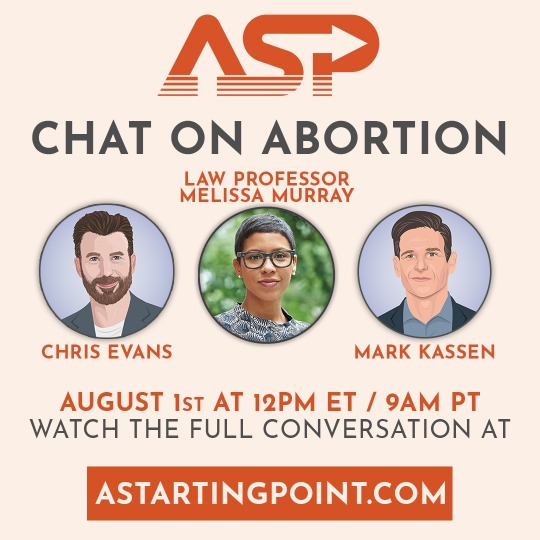
@ASP: On Monday, August 1st at 12PM ET, NYU Law Professor @profmmurray joins ASP's @ChrisEvans and @MarkKassen for a Chat on abortion law and reproductive rights featuring questions from our viewers across the country.
41 notes
·
View notes
Link
7 notes
·
View notes
Text
Republicans are laying the groundwork to completely remake the U.S. Constitution through state legislatures, and there’s a good chance they could succeed.
That makes it imperative for Democrats to focus their energies on strengthening the party’s representation at the state level to stop this attack on our democracy.
According to recent reporting by Insider, GOP party leaders are making arrangements to amend the Constitution via Article V. In order to build a forever-conservative nation, Republican leaders want state legislators to start thinking long-term about what it takes to pass a constitutional amendment—and many GOP lawmakers from across the country met last month in Denver to discuss launching a constitutional convention.
This plan, spearheaded by the group Convention of States Action (COS), has received millions from the Donors Capital Fund, as well as from numerous other high-profile Republican donors. COS is led by Mark Meckler, the interim president of the conservative-friendly social media site Parler, and Eric O’Keefe—a longtime right-wing political operative. COS also has the support of high-profile conservatives and Republicans such as Sean Hannity, Ben Shapiro, Mark Meadows, and Ben Carson. It’s even endorsed by prominent GOP elected officials, including Govs. Ron DeSantis and Greg Abbott, as well as Sens. Rand Paul and Marco Rubio.
Article V lays out two ways to add amendments to the Constitution.
The first is through the federal government, which requires two-thirds of Congress to pass a joint resolution. By design, this rarely happens (we’re only at 25 amendments, 235 years after the Constitution was ratified). And in today’s highly polarized Senate, where Democrats hold the slimmest of majorities, a new amendment any time soon is all but unthinkable.
But the second option, a convention called by two-thirds of the state legislatures in the nation, is a path Republicans are very close to making possible.
Republicans already control 30 state legislatures—they’d only need three more to be able to call a constitutional convention. This means the upcoming November elections—especially at the state level—may be the deciding factor on whether the GOP has the power to radically remake the Constitution.
And lest there be any doubt as to the motivation behind a state-driven constitutional convention, COS has stated that limiting the federal government's power is its main goal in a constitution amendment proposal.
Melissa Murray, a NYU Law professor and co-host of the Strict Scrutiny podcast, expressed serious concern over this idea. “With amendments that only limit the power of the federal government, there’s actually quite a lot Republicans could do,” said Murray. “Taking away power from the federal government could mean curbing some of the powers of the federal government to enforce the 14th Amendment, it could also mean expanding protections of the 2nd Amendment.” This plan has been in the works for years, according to Murray.
With Republicans mounting egregious attacks in state legislatures on the right to vote and abortion access—as well as expanding partisan gerrymandering—it should not come as a surprise that a constitutional convention is now a part of the GOP playbook.
“When we talk about these issues in silos, we fail to realize this is all joined together,” said Melissa Murray. “They (Republicans) are connecting everything under the same organizing principle: to consolidate Republican power in state legislatures. It’s why we have gerrymandering and even why we have voter suppression laws.”
This crisis has been over 10 years in the making. During the Obama administration, Democrats were singularly focused on advancing federal legislation, like the Affordable Care Act. Democrats assumed this would translate to similar victories in state legislatures. Ultimately, this strategy came with a cost, a major one: Democrats lost 13 governorships and 816 state legislative seats. Moreover, they didn't explain to their base of young, diverse, minority voters that the issues that played into local state elections were equally important as the election of the first Black president.
Republicans during this time launched effective organizing groups, such as the Tea Party, which vehemently advocated for a version of “states’ rights” that was in conflict with the American system of federalism—the idea that power should be shared between the federal government and the states. The GOP made sure its supporters understood that there was political power outside of Washington—and that it existed in state and local government.
In the middle of Obama’s first term, Republicans in 2010 were able to win control of the once-in-a-decade electoral map drawing process that defines competitive elections at the state level. This made the district maps easier for them to run candidates in races where it was nearly impossible for them to lose.
Democrats now have to change their strategy. Instead of simply telling voters to give them control of Congress and the Senate, Democrats must emphasize to voters that Republicans still control most state legislatures, and if they remain in power, they can drastically change the Constitution. Furthermore, Democrats running for the state house must drive home the oft-forgotten political maxim that “all politics is local.” The people in state houses and city halls often have a lot more to do with the policies that affect your day-to-day life and the health of your community than whoever’s in charge in Washington.
Amanda Litman, a senior political strategist and co-founder of Run for Something—an organization that recruits and supports young, diverse progressives running for down-ballot office—has been working to get more progressives elected in state legislatures. “Republicans have a longstanding infrastructure even in blue states that give their candidates a leg up. They have been investing in the local races for much longer.”
When asked what Democrats can do to fight back against the threat of a constitutional convention, Litman replied, "Democrats should take the threat seriously. Republicans always tell us what they want to do. We should believe them and think broadly and in the long term of where we should be working to stop this from happening.”
There should be no doubt that Republicans are launching an all-out attack on American institutions, whether it’s the conservative Supreme Court majority removing Americans’ constitutional right to an abortion or state legislatures passing hundreds of measures to limit voting rights. Democrats cannot afford to waste time. This November, they need to invest heavily in every single state legislature race. Every American needs to understand the GOP’s constitutional plans threaten our way of life.
The Constitution has never been a perfect document. In its origin, it permitted the gross inhumanity of slavery and fell short in granting women and all ethnic minorities the right to participate in the political process. But the Founding Fathers, flawed though they were, had the wisdom to create parameters that would allow the Constitution to change with the times.
If Republicans are permitted to run wild with Article V of the Constitution, decades of progress to make our country more fair, equitable, and just could be undone.
#us politics#news#the daily beast#2022 midterms#2022 elections#2022#Republicans#conservatives#gop#us constitution#constitutional crisis#article v#constitutional convention#Convention of States Action#Donors Capital Fund#Mark Meckler#Eric O’Keefe#Melissa Murray#Strict Scrutiny#tea party
27 notes
·
View notes
Video
youtube
Roe v. Wade: Law Professors Break Down What Happened, The Problem With Jon Stewart Podcast, June 30, 2022
Roe v. Wade has been overturned. So now what the hell are we supposed to do? The hosts of the Strict Scrutiny podcast — law professors Leah Litman, Melissa Murray, and Kate Shaw — are back to help Jon process the shocking decision. Writers Kris Acimovic and Tocarra Mallard also weigh in on why the Democrats answer to this crisis seems to be giving them $15.
#Roe v Wade#Dobbs v Jackson#religion#fundamentalism#abortion#autonomy#USA#civil rights#law#history#right to health#right to privacy#reproductive rights#Christianity#scotus#John Stewart#Melissa Murray#Kate Shaw#Leah Litman#the problem with jon stewart#podcast#establishment clause#separation of church and state#ideology#conservatism#originalism#constitutional law#feminism#sexism#racism
0 notes
Text
The differences in couples
Bailey : would you still love me if I was a worm?
John: of course I would *continues to talk about all the adventures they’d take*
Angela: would you still love me if I was a worm?
Wesley: would YOU love me? *does his research before making a choice*
Nyla: *doesn’t ask*
James: you know I’d love you if you were a worm *wants to make sure she knows*
Luna: would you still love me if I was a worm?
Grey: 🤔 what? *confused but would love her*
Lucy: would you still love me if I was worm?
Tim: no. (He would)
#chenford#tim bradford#lucy chen#bailey nune#john nolan#angela lopez#wesley evers#nyla harper#james murray#wade grey#Luna Grey#the rookie#eric winter#melissa oneil#alyssa diaz
290 notes
·
View notes
Text
Decades after he had left it, Jack Harkness slipped through time and found himself once more back in 1941 where he encountered the REAL Captain Jack Harkness whose identity “Jack Harkness” had stolen after the real Jack Harkness’ death in World War 2. ("Captain Jack Harkness", Torchwood, TV)

#nerds yearbook#1941#torchwood#wwii#ww2#world war 2#world war ii#time travel#russel t davies#catherine tregenna#ashley way#captain jack harkness#jack harkness#john barrowman#eve myles#gwen cooper#burn gorman#owen harper#toshiko sato#naoko mori#gareth david lloyd#ianto jones#matt rippy#murray melvin#elen rhys#nadine beaton#gavin brocker#peter sandys clarke#ciaran joyce#melissa moore
20 notes
·
View notes
Text

TWO posts on Valentine’s Day from The Rookie IG! Yay! But also JUSTICE FOR WOPEZ 🆗❤️
#the rookie#valentines day#happy valentine's day#chenford#bailan#jayla#thorlina?#aaron thorsen#celina juarez#tim bradford x lucy chen#nyla harper#james murray#john nolan#bailey nune#Justice for Wopez#angela and wesley#date night#lakers game#eric winter#melissa o’neil#double post
41 notes
·
View notes
Text










Charlie's Angels
2000
#Charlie's Angels 2000#drew barrymore#lucy liu#cameron diaz#bill murray#crispin glover#sam rockwell#melissa mccarthy#matt leblanc
16 notes
·
View notes
Text
youtube
Chicks On Speed - Mind Your Own Business
#chicks on speed#mind your own business#delta 5#cover#melissa logan#kiki moorse#alex murray-leslie#electroclash#electropunk#12'' single#1999#the unreleases#2000#Youtube
13 notes
·
View notes
Text
0 notes
Text


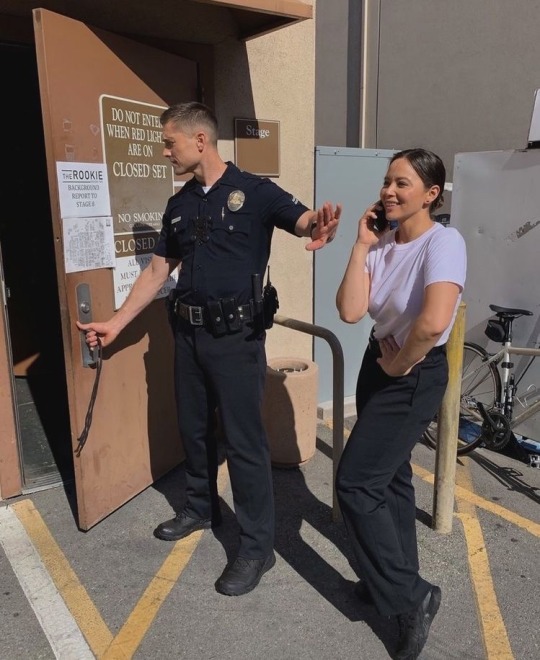

Missing them so much right now❤️
#jackson west#john nolan#the rookie#tim bradford#angela lopez#nyla harper#aaron thorsen#wade grey#wesley evers#celina juarez#melissa o'neil#alyssa diaz#eric winter#nathan fillion#bailey nune#mekia cox#tamara collins#james murray
28 notes
·
View notes
Text










Gilmore Girls (2000-2007)
#lorelai gilmore#rory gilmore#gilmore girls#alexis bledel#lauren graham#melissa mccarthy#2000s nostalgia#2000s#mine#chad michael murray
88 notes
·
View notes
Text
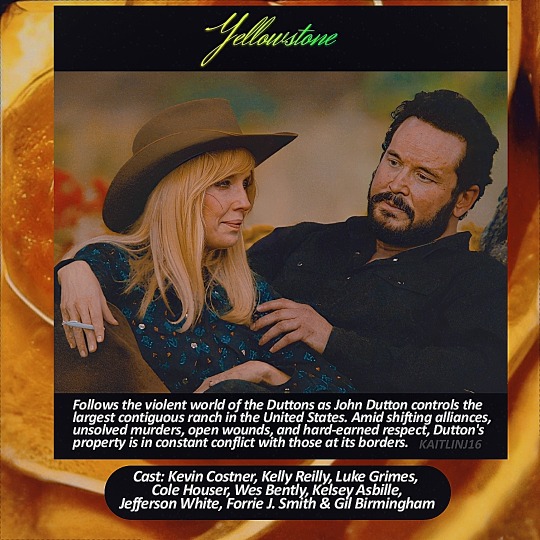
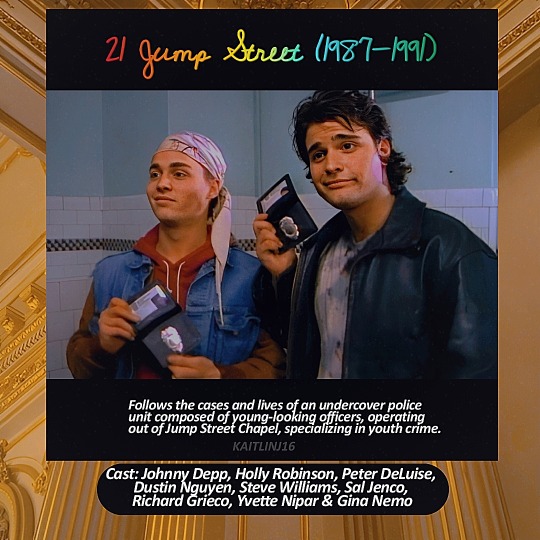
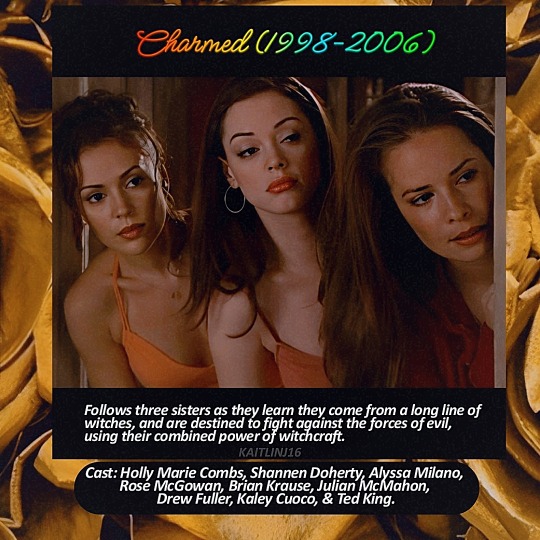

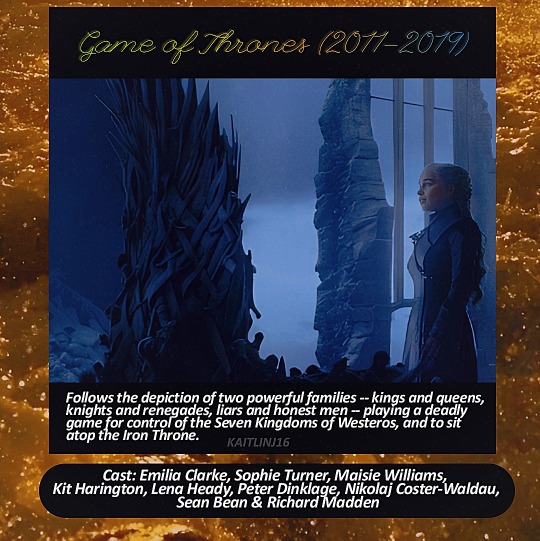
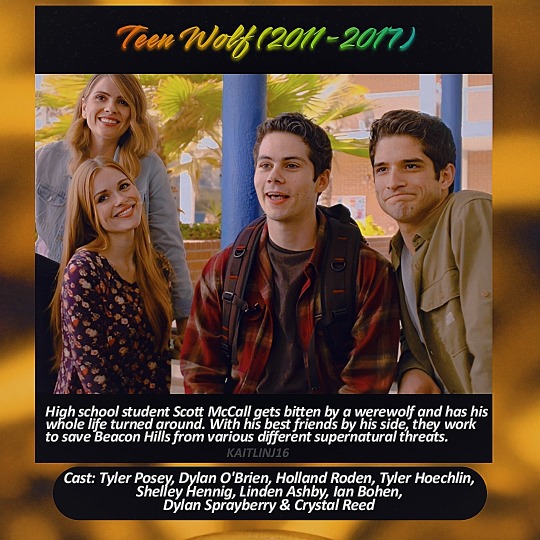
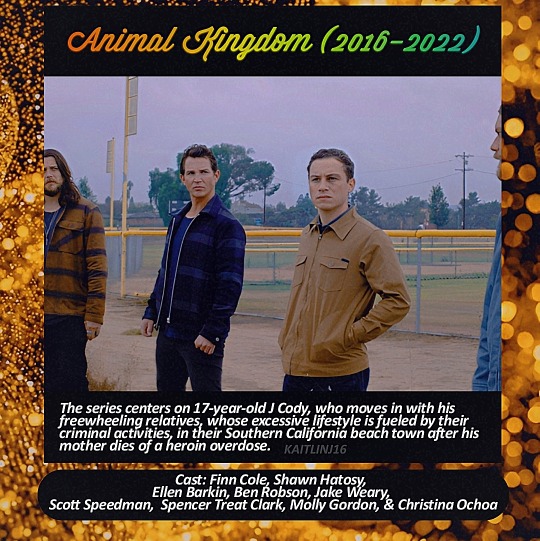
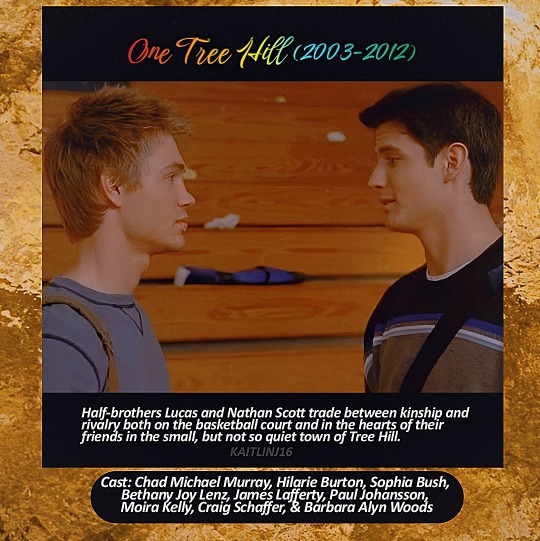

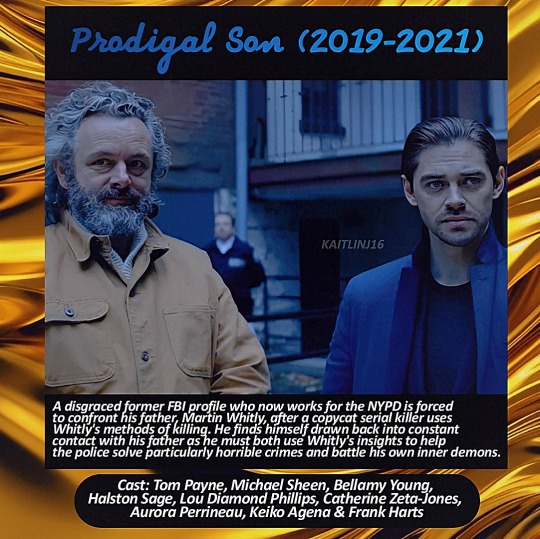
January Challenge
Shows to binge this year
💛💛💛
#tv series#binge worthy#21 jump street#Johnny Depp#charmed#Holly Marie Combs#Alyssa Milano#one tree hill#Chad Michael Murray#James Lafferty#the walking dead#Norman Reedus#Melissa McBride#game of thrones#Emilia Clarke#teen wolf#Tyler Posey#Dylan O'Brien#Holland Roden#animal kingdom#Finn Cole#Shawn Hatosy#yellowstone#Kelly Reilly#Cole Houser#prodigal son#Michael Sheen#Tom Payne#edits
4 notes
·
View notes
Text
Walden BACC #988

In addition to working for the Merridews, Melissa Gordon had recently taken on some housekeeping duties for the Murray family, who were, if possible, even more unusual. This barely even fazed her anymore though; she’d become used to the strange and the unusual during her time in Walden.
Hell, she was even considering moving there herself; there was plenty of business to be had and the commute to and from Mistvale was becoming a pain.
Melissa was the first to discover the strange artefact left on the Murrays’ lawn when she went to take out the trash.

Melissa: “There’s been a delivery for you, ma’am.”
Kate: “Oh?”
She hadn’t ordered anything, and AIOS hadn’t mentioned doing so either.
Melissa: “I didn’t look too closely, but I think it’s a lamp. You know, one of those fancy, antique ones.”
Kate frowned; this was making less and less sense. Unless AIOS had suddenly developed an interest in antiquities she didn’t know about, she couldn’t see where such a thing had come from.
She strode out the door, half expecting to find that Melissa had been mistaken...

...and yet there it was, a golden antique lamp, just as she said.
Kate bent down to have a closer look - ugh, the thing was dusty! She brushed her hand against the lamp’s surface, grimacing as her fingers came away stained with grey.

And then, it happened.

#sims 2#the sims 2#sims2#ts2#sims 2 pictures#sims 2 gameplay#sims 2 bacc#bacc: walden#kate murray#melissa gordon
24 notes
·
View notes